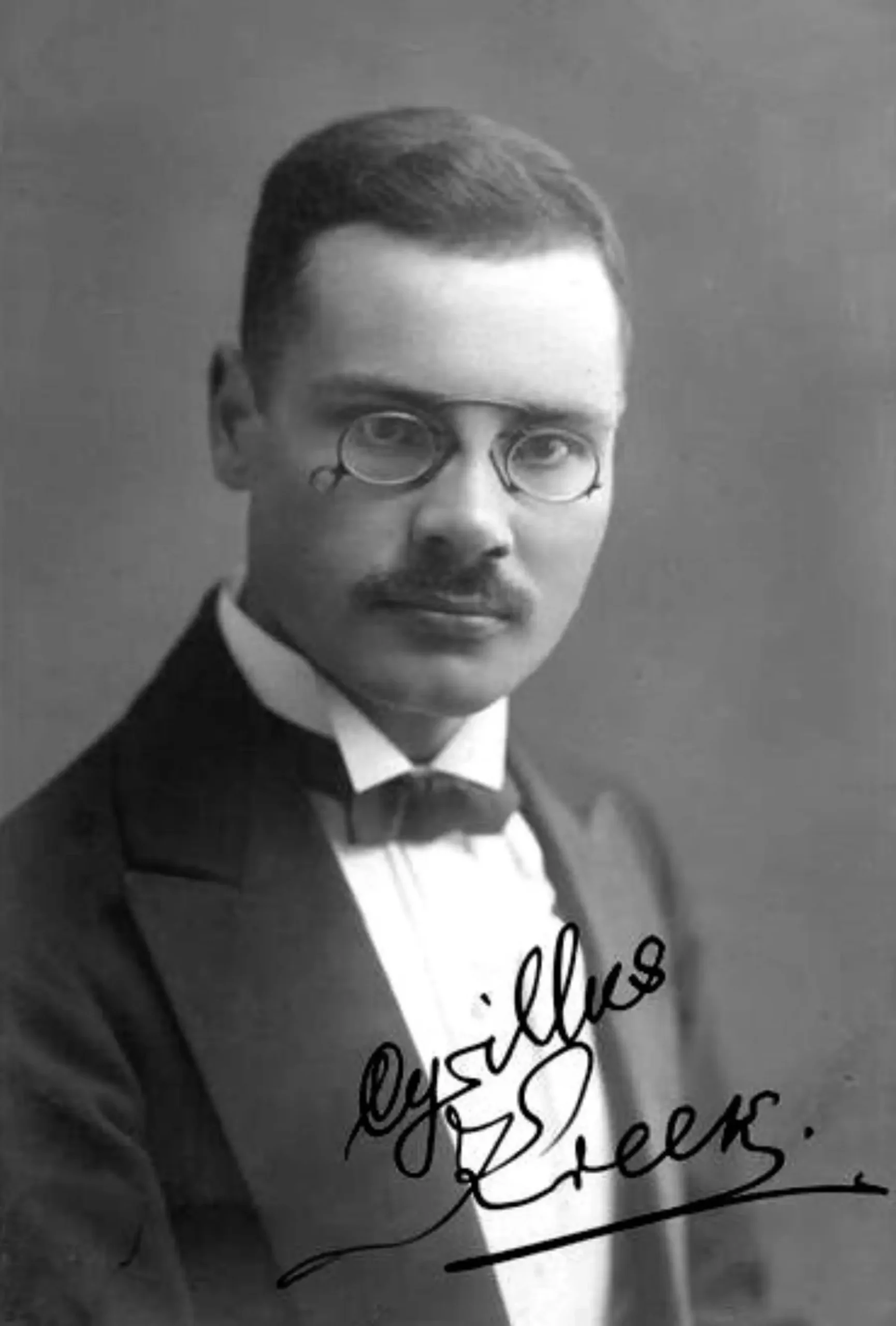29.06 at 11:00
Alexander Cathedral, Kiriku 9
FREE ENTRY!
Places are limited. Please reserve your spot HERE >>
As part of the XIII Global Estonian Festival (ESTO), we will present world-class choral music and offer listeners one of the beloved masterpieces of Estonian music – Requiem by Cyrillus Kreek. Conducted by Hirvo Surva.
- Estonian National Opera Boys Choir
- Estonian TV Girls Choir
- Stockholm Estonian Mixed Choir
- Stockholm Estonian Womens Choir
- EMTA Sinfonietta
- Bishop Ove Sander
- Urmas Karileet, Pastor of the Narva St. Mary’s Congregation
- Leevi Reinaru, Director of the EELC Mission Centre, Pastor
We dedicate this performance with gratitude to the bearers of Estonian identity who are no longer with us.
Inspired by Mozart’s Requiem, this great work will be performed in Estonian. The work was completed in 1927 and took two years to write. Cyrillus Kreek completed Requiem at the age of 37, when he was a man of full vigour, creatively active, with insightful thinking and a witty way with words. What made him write a mass for the souls of the dead? The impetus may have been the sudden death of his good friend Peter Süda in 1920 and an attempt to complete Süda’s intention of composing a Requiem.
Estonia’s first Requiem premiered on 20 October 1929 and was performed at the Estonia Concert Hall by the Estonian Music Department Choir, the Estonia Symphony Orchestra and baritone Aleksander Arder. The conductor was Juhan Aavik. The work was performed a total of eight times during the composer’s lifetime, including within the framework of the Tenth General Song Festival on 25 June 1933 in Kaarli Church, and twice in Tartu in 1938: on 9 March at Vanemuine under the baton of Enn Võrk and on 20 March at the Pauluse Churchl under the baton of Eduard Tubin. The last time Kreek heard his work was on 18 February 1940, when his 50th birthday was celebrated at the Estonia Concert Hall. Since 1968, the ’Requiem’ has been performed under the direction of Alfred Karind and Roman Matsov, and later conducted by Peeter Lilje, Arvo Volmer, Olari Elts, Tõnu Kaljuste and others.
“What faith are you?” the sharp-witted journalist asked the composer, who was the author of a Catholic funeral mass, baptised into the Lutheran faith as Karl Ustav, then, because of his father’s new job at Vormsi Church School, rebaptised into the Orthodox faith with the new first name, Kirill. And now, in the Republic of Estonia, “What faith are you?” “I am of the Estonian faith,” replied Cyrillus Kreek.
From the time of its creation to the present day, almost all writers who have described the characteristics of the Requiem have used the epithets: national, Estonian, and balanced or restrained. The ’Requiem’, in its basic character, style and expression, has had a more or less uniform effect on listeners and music lovers over the decades, earning the acclaim of experts.
The ’Requiem’ is not only the finest work of our sacred music, it is without doubt one of the most valuable achievements of all of our musical compositions. With this work, Kreek confirms in a concentrated form his exceptional creative talent in a purely artistic, and even more so, in a national sense. [—] This work, which is made up of a number of individual movements, has been developed in a very organic way: in all its individual movements one can feel the fundamental depth of real life in the form of religious experiences that dominate the work. All the melodic material is derived, as it were, from a kind of all-embracing primordial melody. But what gives exceptional value to this seemingly insignificant, free but very concentrated-in-form and generally musically-dense composition, is the fact that Kreek has succeeded in creating a musical language that is entirely based on the idiosyncrasies of ancient folk music. (Karl Leichter 1939 Kreek’s 50th birthday celebration)
There is a kind of inner fire that radiates from the whole work, a deep, sometimes very tender and aesthetically pleasing undertone, which occasionally transforms into tense rising action, brilliant climaxes, only to subside again, as if in love with itself, or to start a new thought. Everything is born in moderation, everything is in its place. The process of creating this magnum opus has been one of the most beautiful through which a human being can live and bring out of himself with such clarity and perfection. Although there are Requiems in the world’s literature that are more powerful dramatically, more effective in terms of expressive means, more virtuosic in their use of compositional techniques, more closely aligned with religious traditions, there is no other work written with such deeply felt, great inner warmth and sentiment — yet still strictly balanced — as Kreek’s Requiem.
(Eduard Tubin 1962)
Cyrillus Kreek 3. XII 1889 — 26. III 1962
 On December 3, 1889, a ninth child was born to Gustav (Konstantin after converting to the Orthodox faith) and Mari (Maria) Kreek in the Saanika Schoolhouse in Võnnu parish, Lääne County. Five weeks later he was baptised Karl Ustav. In 1896 his father landed a teaching post in Vormsi, where the family lived for a short time. There the whole family was baptised into the Orthodox faith. The name Karl Ustav was replaced by the Russian name, Kirill. This later gave rise to the artistic name, Cyrillus.
On December 3, 1889, a ninth child was born to Gustav (Konstantin after converting to the Orthodox faith) and Mari (Maria) Kreek in the Saanika Schoolhouse in Võnnu parish, Lääne County. Five weeks later he was baptised Karl Ustav. In 1896 his father landed a teaching post in Vormsi, where the family lived for a short time. There the whole family was baptised into the Orthodox faith. The name Karl Ustav was replaced by the Russian name, Kirill. This later gave rise to the artistic name, Cyrillus.
Like his father, Cyrillus Kreek earned his daily bread as a teacher, also working as an educator for over forty years. Teaching was important to both of them, but they did much more: his father gardened, his son worked as a conductor and wrote music. The latter activity – composing – became central to Cyrillus Kreek’s life. In addition to his compositions, Kreek has left his mark on Estonian music as a music educator, conductor, collector of folk music, promoter of the musical activities of the Estonian Swedes, etc.



